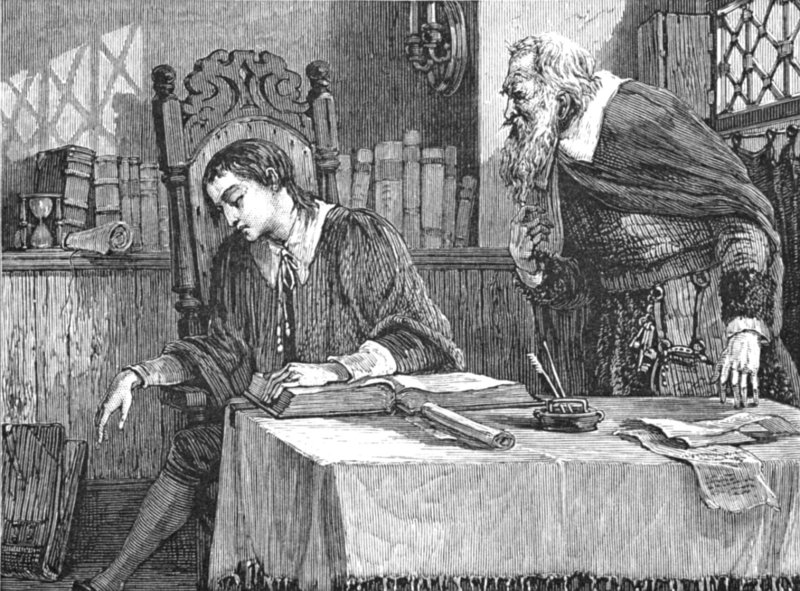An act that violates a certain religious or moral value.
What is Sin?
How is Sin perceived in Hester's society and what influence does it have on the community?
It is extremely frowned upon, especially in a Puritanical Society.
What is Arthur Dimmesdale's role in society?
He is a minister, in a Puritan Society.
Throughout the novel, Chillingworth is quite obsessed with finding Hester's partner. To what lengths is he willing to exact his revenge?
Chillingworth is willing to go a great many lengths to exact his revenge, although murder is not one of them.
The main characters, Hester Prynne, Arthur Dimmesdale, and Roger Chillingworth.
Who are the characters that commit a form of Sin?
What happens to Hester because of her crime?
Punishment and Isolation.
How are his sermons an expression of his guilty conscience?
How does he turn to other forms of confession/punishment?
He uses it as some form of confession for his Sin.
Just like Dimmesdale, Chillingworth had begun as well to deteriorate, in state and appearance. How is are they both alike but different in their actions and character?
Chillingworth openly understands his actions but continues to do so anyway.
Dimmesdale understood his actions as well but does what he thinks he can to atone for them.
How does Hester cope with her punishment?
In other words, how does she revolve her life around the consequences of her actions?
She becomes quite an isolated Philosopher.
Arthur's mental and physical condition deteriorates throughout the novel, because of his guilt and shame, however, he did allow Hester to receive all the blame and punishment. Can his cowardice and hypocrisy be viewed as a Sin?
Allowing one to receive blame for something both partners had done can and is viewed as a Sin.
In his pursuit for revenge, Chillingworth was determined to torture Arthur for his crime. But when Arthur himself announces his crime before his death, Roger is taken the one goal he had hoped to reach. Still, why does Arthur tell Chillingworth, " 'May God forgive thee!’ said the minister. ‘Thou, too, hast deeply sinned!' "?
Arthur knows and acknowledges Chillingworth's torment of him. Still, Chillingworth had lost the very thing that allowed kept him to continue his pursuit.
Despite having been publicly shamed and having lost someone she cared about, Hester had returned to the town many years after Dimmesdale's death.
How did her act shape her into a figure of righteousness, rather than a figure of shame?
Hester's punishment and isolation did not shrivel her character, but rather made her flourish.
As his sermons prove ineffective for his guilty conscience, he turns to harm himself. In addition to being psychologically abused by Chillingworth, his mental and physical condition continues to worsen. How does this compare to Hester's situation?
Hester's External Punishment vs. Arthur's Internal Punishment.
Curiously enough, after his death, Chillingworth leaves an abundant fortune to Pearl. Could it be somehow a revelation that he is no longer upset with Hester? Or had he realized that his descent into vengeful madness had been a Sin unto itself?
His obsession with Arthur and Hester's deed had taken up a large portion of his life.
"Hester Prynne were now impressed as if they beheld her for the first time—was that SCARLET LETTER, so fantastically embroidered and illuminated upon her bosom. It had the effect of a spell, taking her out of the ordinary relations with humanity, and enclosing her in a sphere by herself." (Hawthorne, 82)
 "And, as Hester Prynne had no selfish ends, nor lived in any measure for her own profit and The Scarlet Letter 393 of 394 enjoyment, people brought all their sorrows and perplexities, and besought her counsel, as one who had herself gone through a mighty trouble. Women, more especially—in the continually recurring trials of wounded, wasted, wronged, misplaced, or erring and sinful passion— or with the dreary burden of a heart unyielded, because unvalued and unsought came to Hester’s cottage, demanding why they were so wretched, and what the remedy! Hester comforted and counselled them, as best she might." (Hawthorne, 392-393)
"And, as Hester Prynne had no selfish ends, nor lived in any measure for her own profit and The Scarlet Letter 393 of 394 enjoyment, people brought all their sorrows and perplexities, and besought her counsel, as one who had herself gone through a mighty trouble. Women, more especially—in the continually recurring trials of wounded, wasted, wronged, misplaced, or erring and sinful passion— or with the dreary burden of a heart unyielded, because unvalued and unsought came to Hester’s cottage, demanding why they were so wretched, and what the remedy! Hester comforted and counselled them, as best she might." (Hawthorne, 392-393)
" ‘Hester Prynne,’ cried he, with a piercing earnestness, ‘in the name of Him, so terrible and so merciful, who gives me grace, at this last moment, to do what—for my own heavy sin and miserable agony—I withheld myself from doing seven years ago, come hither now, and twine thy strength about me! Thy strength, Hester; but let it be guided by the will which God hath granted me! This wretched and wronged old man is opposing it with all his The Scarlet Letter 378 of 394 might!—with all his own might, and the fiend’s! Come, Hester—come! Support me up yonder scaffold.’ " (Hawthorne, 381)
" ‘The law we broke I—the sin here awfully revealed!—let these alone be in thy thoughts! I fear! I fear! It may be, that, when we forgot our God—when we violated our reverence each for the other’s soul—it was thenceforth vain to hope that we could meet hereafter, in an everlasting and  pure reunion. God knows; and He is merciful! He hath proved his mercy, most of all, in my afflictions. By giving me this burning torture to bear upon my breast! By sending yonder dark and terrible old man, to keep the torture always at red-heat!" (Hawthorne, 383)
pure reunion. God knows; and He is merciful! He hath proved his mercy, most of all, in my afflictions. By giving me this burning torture to bear upon my breast! By sending yonder dark and terrible old man, to keep the torture always at red-heat!" (Hawthorne, 383)
" ‘Yea, woman, thou sayest truly!’ cried old Roger Chillingworth, letting the lurid fire of his heart blaze out before her eyes. ‘Better had he died at once! Never did mortal suffer what this man has suffered. And all, all, in the sight of his worst enemy! He has been conscious of me. He has felt an influence dwelling always upon him like a curse. He knew, by some spiritual sense—for the Creator never made another being so sensitive as this—he knew that no friendly hand was pulling at his heartstrings, and that an eye was looking curiously into him, which sought only evil, and found it." (Hawthorne, 257)
 "Old Roger Chillingworth knelt down
beside him, with a blank, dull countenance, out of which
the life seemed to have departed,
‘Thou hast escaped me!’ he repeated more than once.
‘Thou hast escaped me!’
‘May God forgive thee!’ said the minister. ‘Thou, too,
hast deeply sinned!’ " (Hawthorne, 382)
"Old Roger Chillingworth knelt down
beside him, with a blank, dull countenance, out of which
the life seemed to have departed,
‘Thou hast escaped me!’ he repeated more than once.
‘Thou hast escaped me!’
‘May God forgive thee!’ said the minister. ‘Thou, too,
hast deeply sinned!’ " (Hawthorne, 382)